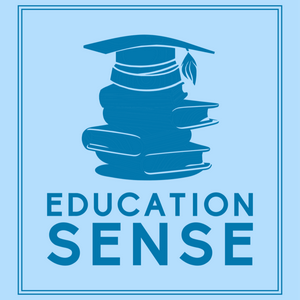How do we make space for the curious child? In a society where we are eroding subjects such as music, art and dance from the curriculum, where knowledge and achievement are valued above play and creativity, how do we encourage curiosity in children and allow it to thrive inside and outside the classroom?Ross Borthwick, Isabel Rich and David Marshall approach the question of curiosity in Episode 5 of Season 3 with...well, curiosity. It's something all schools want to promote - or say they want to promote - but what exactly is it, and how do we keep the spark alive in the children we teach, particularly in an age of instant access knowledge?Episode Links & Other Things Article from The Atlantic: How the Ivy League Broke America, a thought-provoking look at the way exclusivity in education has increased the divide in the States. Essential reading for anyone involved in education, with lots of relevance to the UK system: https://bit.ly/4iibPOwMichael Rosen's Book of Play is wonderful, not just because of all the creative ideas but because of Rosen's own commentary on the ideas behind play, referencing Jean Piaget among others: https://wellcomecollection.org/books/michael-rosen-s-book-of-playFrancis Alÿs' study of different children's games around the world explores play across different countries. Following the exhibition at The Barbican Centre earlier this year, you can find videos on this site showing different games in different countries, a window into the ingenuity of children everywhere: https://francisalys.com/category/childrens-games/How to Develop Curiosity in Kids: 9 engaging ideas from the International School in Ho Chi Minh City: https://bit.ly/3BAxcddFor anyone alive in the 90s, Dorling Kindersley (DK) were the go-to for information and fact-based learning, especially their cross-section books: https://www.dk.com/uk/book/9780241379783-stephen-biestys-incredible-cross-sections/ We also love the range of non-fiction books you can get today. Flying Eye is one of the best around, with plenty to inspire curiosity: https://flyingeyebooks.com/Dunkeld Cathedral in Perthshire can be visited all year round: https://www.historicenvironment.scot/visit-a-place/places/dunkeld-cathedral/The Rest is Education is a podcast created by teachers for teachers, parents and anyone interested in education. Please follow, share and recommend whenever you can. You can email us at
[email protected] or find us on LinkedIn. Thanks for listening!


